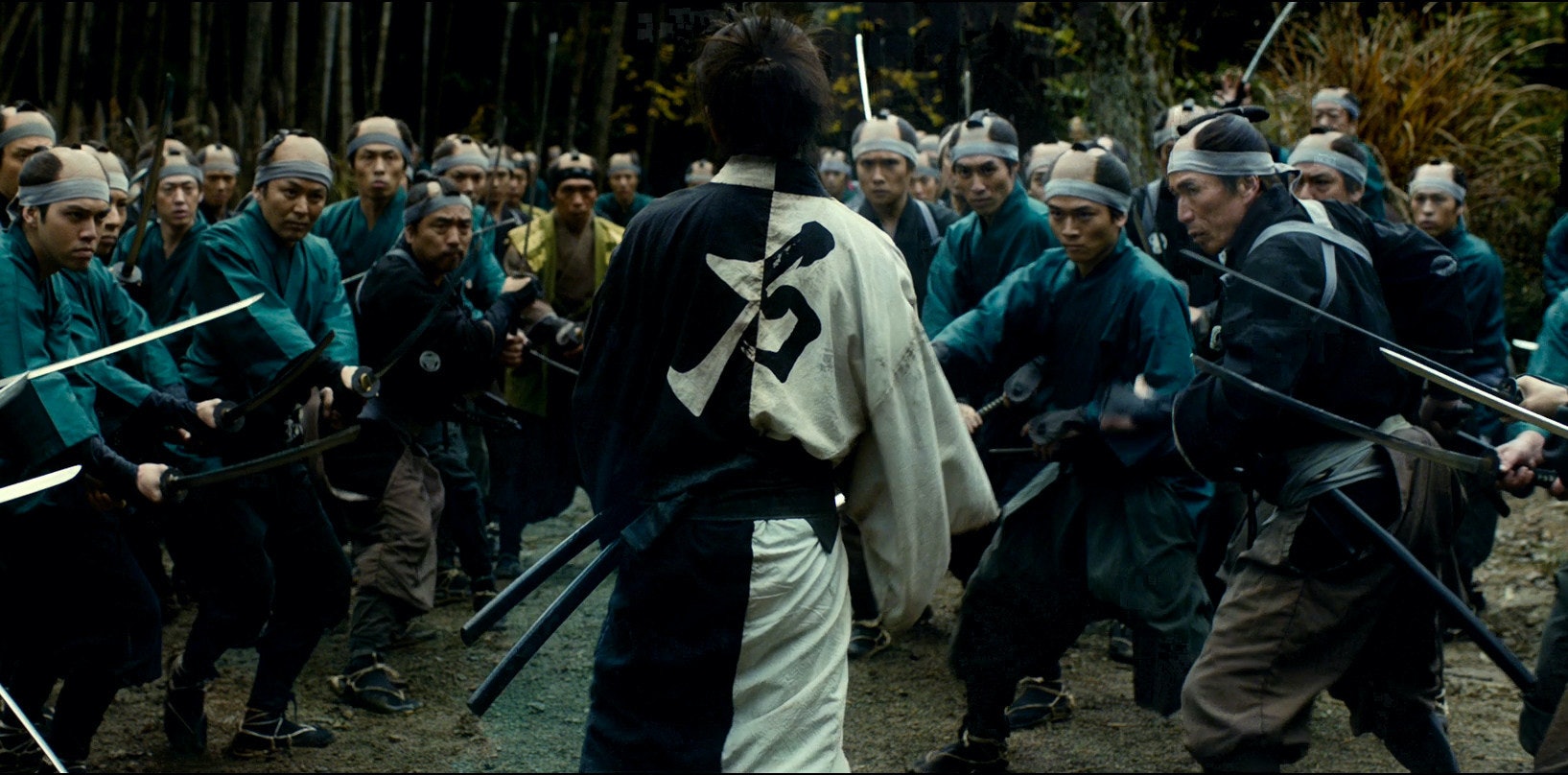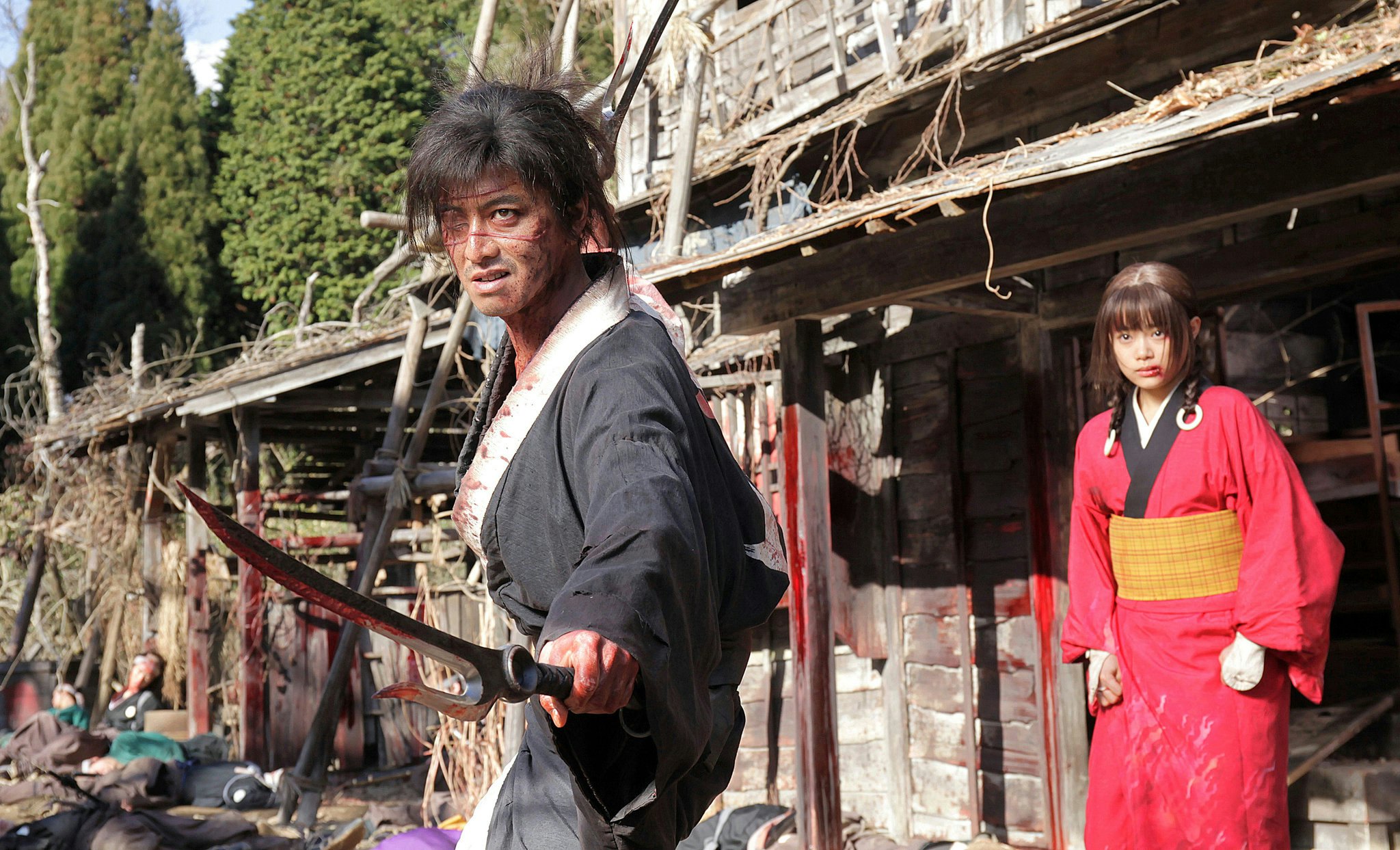
Science fiction and fantasy writers have long been fascinated by immortality. Popular blockbusters like Eternals and The Old Guard, as well as classics like Highlander and Peter Pan, have all explored eternal life and the ways in which living forever can be both a blessing and a curse.
But few movies have examined the price of immortality in quite the same way as Blade of the Immortal. The 2017 period thriller from Japanese auteur Takashi Miike is one of the most inventive and unabashedly violent action movies of the past 20 years. Like a unique cross between Kill Bill Vol. 1 and Logan, the film combines the ultraviolence of the former with the poignancy and heart of the latter.
Based on the manga of the same name by Hiroaki Samura, Blade of the Immortal follows Manji (Takuya Kimura), a samurai who becomes infected with bloodworms that have the power to keep him alive forever despite his desperation to die following the murder of his younger sister, Machi. After spending decades living like a walking ghost, Manji is approached by a young girl, Rin Asano (Hana Sugisaki), who asks for his help in killing the society of assassins that murdered her parents.
Blade of the Immortal is both a relentlessly violent action film as well as a strange and surprisingly sweet story about one immortal man’s desire to protect the little girl who’s come into his life. That combination becomes evident in the opening minutes, which see Manji tear through an army of bounty hunters with his katana as revenge for their murder of his sister.
Shot in stunning black and white, Blade of the Immortal’s opening sequence sets the tone for everything that follows. Not only is the scene brilliantly staged, but it’s rooted in Manji’s emotional turmoil. The film’s later action sequences all stick to that formula, allowing Miike to showcase his technical prowess and stylistic ingenuity as a filmmaker as well as his unique ability to ground even the most ludicrously violent moments in genuine human emotions.
That’s true in the film’s opening and closing set pieces, which see Manji (and, occasionally, several other characters) use their samurai skills to lay waste to entire armies. However, it’s also evident in an unexpected confrontation that comes midway through Blade of the Immortal when Manji engages in a fight with another centuries-old samurai. Their battle manages to be both the film’s most bizarrely violent sequence, and its most quietly compelling.

But the greatest joy of watching Blade of the Immortal doesn’t come from its many thrilling action sequences, but in witnessing how it deftly balances different tones throughout its runtime. Anyone familiar with Miike’s work won’t be surprised by the tonal variety, but it’s nonetheless a joy to watch how easily the Audition filmmaker succeeds in making Blade of the Immortal a relentlessly violent film about the power of love.
Much like the adamantium skeleton that makes Wolverine (Hugh Jackman) live in constant pain in 2017’s Logan, Manji’s bloodworms have the ability to both keep him alive forever and cause him great pain. Knowing that, it isn’t much of a surprise when we meet him and discover that he’s come to see life as a curse he can’t shake free of.
But then he crosses paths with Rin, and the rootlessness that had come to define his existence for decades begins to fade away and be replaced by a newfound connection to life. As a result, Blade of the Immortal succeeds in telling a story that’s less interested in the accumulative toll of violence, and more in how the difference between wanting to die and wishing to stay alive can sometimes depend entirely on who’s standing by your side.
Blade of the Immortal is streaming now on Amazon Prime.







